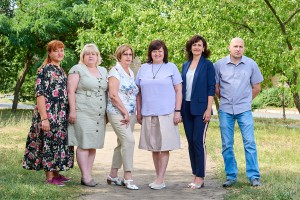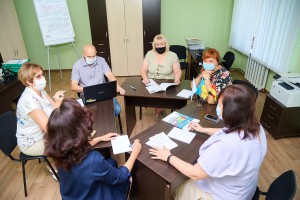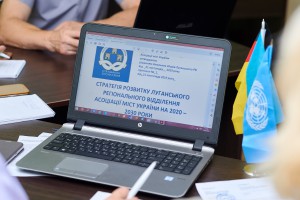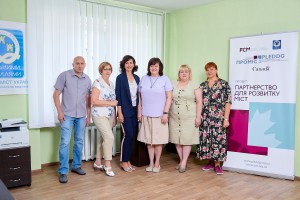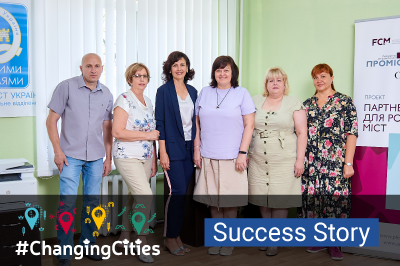 PLEDDG uses a consistent and balanced approach toward ensuring the sustainability of outcomes of all initiatives implemented with its backing. To this end, the project team and partners are constantly planning strategic activities designed to help prolong the favourable impacts of projects and maintain their productivity as much as possible once external aid stops.
PLEDDG uses a consistent and balanced approach toward ensuring the sustainability of outcomes of all initiatives implemented with its backing. To this end, the project team and partners are constantly planning strategic activities designed to help prolong the favourable impacts of projects and maintain their productivity as much as possible once external aid stops.
Back in 2016, PLEDDG developed the AUC Regional Office Development Strategy after analyzing the organizational structure of the regional offices (ROs) of the Association of Ukrainian Cities (AUC), with the intention of defining a new and more effective role for ROs in promoting the development of cities. This marked the beginning of a gradual reorganization of offices into innovative information and service centres. These steps were necessitated by the dependence of ROs on external funding, insufficient proceeds from membership fees, and mounting competition from other associations of local government agencies. Consultants were hired in five pilot regions (Zaporizhia, Poltava, Ivano-Frankivsk, Vinnytsia, and Luhansk) to devise and implement RO development strategies.

The Luhansk Regional Office of the AUC provided the most stellar performance of all the pilot regions supported by PLEDDG. The local team managed to put the aid to effective use, augmented and strengthened their institutional potential, and created conditions favouring continued sustainable development.

Since the armed conflict broke out in eastern Ukraine, the Luhansk RO has been working out of Severodonetsk. It currently comprises 26 territorial communities. Regional Office Executive Director Natalia Boyko says that they had virtually nobody to work with after the relocation, seeing how 70% of the communities remained in the occupied territory. When the offices were transformed into information and service centres, the Luhansk team was the first to pursue this line of work. As of March 2020, the Luhansk regional office was the only one providing billable services to local government agencies. According to Natalia Boyko, they owe this result primarily to a proactive approach and maximum mobilization of resources in the face of the armed conflict in Ukraine’s east. The office found itself on the brink of getting shut down in 2014. In order to stay afloat and continue to reinforce the voice of local government in the Luhansk Region, a decision was approved to introduce billable services as soon as practicable.

The Luhansk Regional Office of the AUC offers the following services: consultancy, methodological, and training support for local government agencies; setting up regional platforms for problem solution discussions at the local government level; fundraising; re-granting; and support of local economic development. Enhancement of the potential of the Luhansk RO was accompanied by ongoing two-component assistance from PLEDDG: 1) support from a highly-qualified consultant and; (2) transfer of the strategic planning methodology, which made it possible to competently formulate the aspects of continued development of the regional office.

The Luhansk Regional Office’s Development Strategy for 2020-2030 and the Strategy Implementation Plan for 2020-2022 were prepared in 2019 with PLEDDG support. One of the strategic growth aspects of the RO involves effective external communications and building long-term partnerships. The regional office is already providing services not just within Luhansk Region, but also in other regions, thereby adopting a competitive stance at the nationwide level. The strategy calls for setting up a hub of eastern regions of Ukraine on matters of local economic development at the regional office. Local government agencies of the Donetsk, Kharkiv, Sumy and Dnipropetrovsk regions will receive consultancy and training support along with assistance with strategy mapping for projects and targeted programs.

The AUC’s Action Plan for ensuring the sustainability of the outcomes of initiatives implemented with PLEDDG’s support, calls for approving development strategies and action plans of all regional offices by the end of 2020. The practice of annual reporting on the implementation of these strategies will also be introduced. Other plans for the year include elaborating a mechanism by which the AUC network will provide billable services, updating the list of services and supplementing it with strategic environmental assessment, launching billable services at each regional office in the PLEDDG pilot regions.
| Download success story Leaders Forged in a Crisis: Transformation of the AUC Regional Office in Luhansk in pdf |


